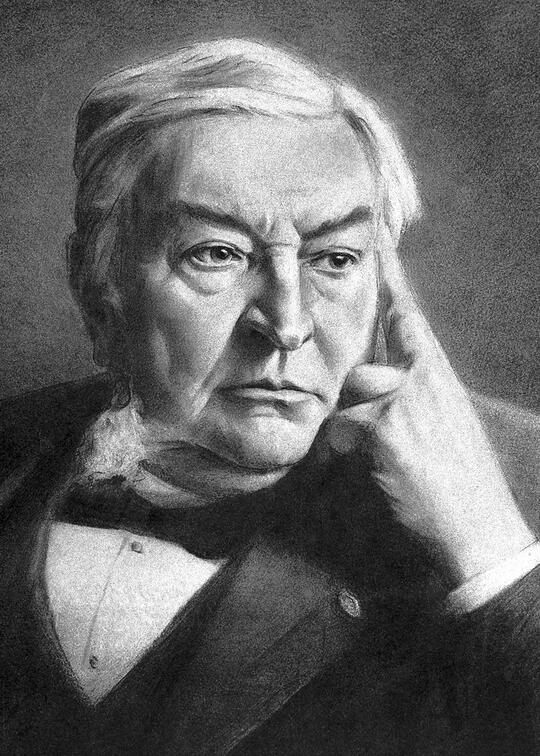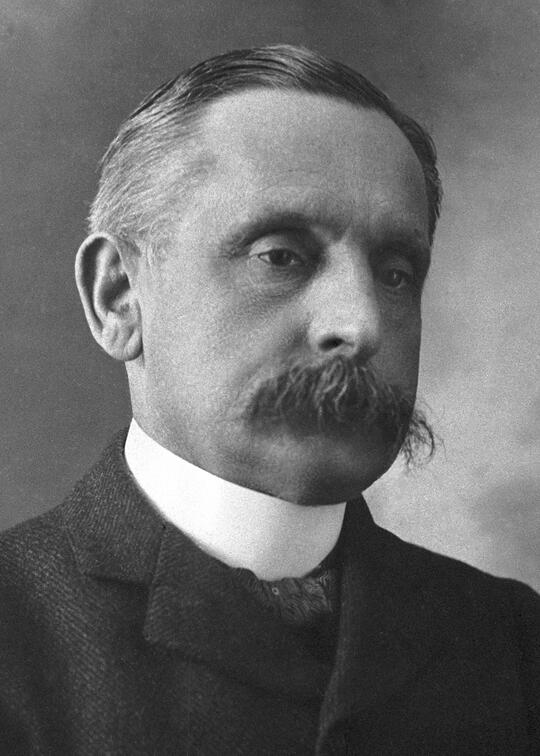1909
Auguste Beernaert
Paul Henri d'Estournelles de Constant
for their prominent position in the international movement for peace and arbitration

Auguste Beernaert (1829 - 1912)
Belgium
Prime Minister and Inter-Parliamentarian
Auguste Beernaert was one of Belgium's most skilful lawyers. In 1873 he became a member of the Government, and from 1884 to 1894 he was King Leopold II's Prime Minister. After resigning from the Government, however, he became opposed to the King because of the brutal policy pursued in the Congo, but he remained a member of parliament all his life. It was through his inter-parliamentary work and at the international peace conferences at the Hague in 1899 and 1907 that he became known as a friend of peace. At the Hague, among other assignments, he headed the commission dealing with the laws and customs of land warfare, and with regard to the question of neutrality he pleaded the cause of the small states. When the first case came up before the International Court at the Hague in 1902 (USA against Mexico), Beernaert acted for Mexico. Towards the end of his life, Beernaert endeavored to prevent aerial warfare. A few days before he died he submitted a proposal against such warfare.
Paul Henri d'Estournelles de Constant (1852 - 1924)
France